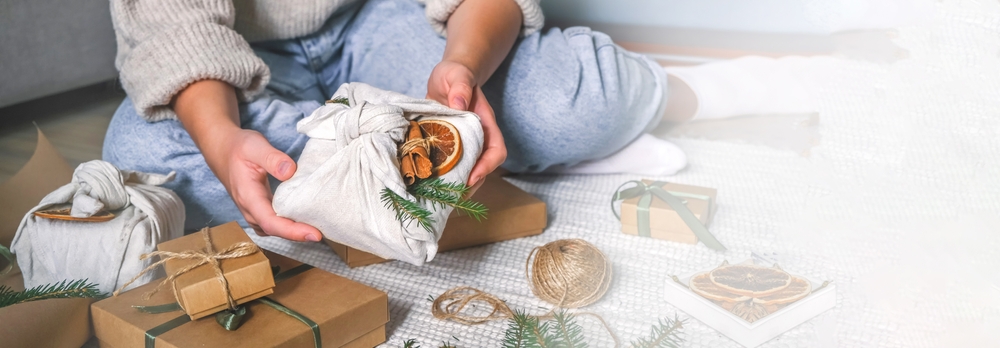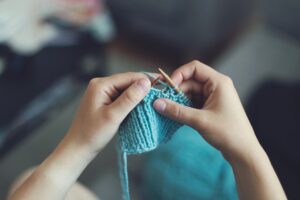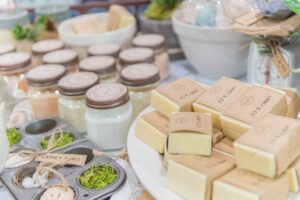
Did you know every year 60 million unwanted gifts go to waste?
A big part of Christmas is wrapped around gifts. From Christmas markets to shops having enticing windows and online adverts all shouting out, enticing crowds to buy that “special gift”. Whether big or small, expensive, or low cost, many go to waste, and this contributes to a huge amount of carbon emissions impacting the environment not to mention the cost and impact on pockets.
The thought that goes into a gift can be as precious as the gift itself and it doesn’t have to be a bought or be expensive. Sometimes things we treasure the most are the memories and the thoughtfulness that come with it. From the actual gift itself to the process of wrapping it can add up to the cost and carbon footprint associated with it.
The gift
Gifting meaningful gifts sometimes can be tricky and many spend days searching and planning for that special gift that will give people that fuzzy Christmas feel. There are many ways round giving a low cost eco friendly yet thoughtful gift, from creating something out of recyclable materials to reusing that old jar sitting around empty, to going to one of the many local Christmas markets or shops to choose something. Handmade items are always a good point to start with whether its bought or made with your own two hands.
If you’re a bit stuck on what to do for someone and still want to keep it a surprise check out the Good Housekeeping website for some of their eco-friendly and sustainable gifts. Additionally, you could check out the local Green Durham website for information on local shops and businesses that may have something available at your doorstep. If you’re considering making gifts and need some inspiration check out some of the ideas on the Botanical Paperworks blog, they have some nifty tips on making bath bombs, home spreads and even homemade potpourri.
Recycling plays a big part in gifting too; not everything has to be bought new. There are many stores that sell electronics second hand, at a significantly low price too, which is better for money and most of the time are next-to-new quality, great option for if the kids are asking for expensive gifts like phones or a gaming console. However, when it comes to preowned, you can also buy accessories like jewellery, toys, books, and games. There are many shops, even online stores that can offer second hand, even people in your local community may be posting on social media to sell their preowned objects. If you’re still not sure on what to do sometimes asking the person what kind of things they like can also help with reducing waste and making sure what they get is something they will appreciate and treasure.
You don’t always have to go out and buy gifts, sometimes we have what is needed to make things either in cupboards sitting unused or even just at our doorstep. Just takes a little imagination and inspiration, all the while still being able to keep in the spirit of Christmas, without dipping into your pocket and keeping your carbon footprint low.




How to wrap it
Of course, once the gift is sorted then we think of wrapping it up and giving that extra touch for visual impact.
The most environmentally friendly way would be to use reusable fabric or recycled wrapping paper and you can use some string to tie it all together. Sometimes we are surrounded with items we could use from old newspapers and magazines to old t-shirts and even brown paper that comes with packages sometimes. Additionally, fabric sacks, bags and stockings are all great options to consider, they are reusable and look nice and make things easier to pack up. Even the regular gift bags that you can buy in stores can be used repeatedly, just change the label or don’t use it at all.
Keep in mind that most wrapping paper isn’t always recyclable causing huge amounts of waste, so if you do buy rolls of wrapping paper, try to not buy glittery or shiny wrapping paper, and avoid plastics. There are many sustainable low cost to no cost options on the market, from recycled paper to sustainably sourced and even compostable wrapping paper. If you are buying paper, lookout for the Forest Stewardship Councils certificate and keep an eye out on the items’ description as labels will tell you whether it’s recyclable or not.
The air ambulance service has shared some nifty sustainable gift wrapping ideas that you may find helpful too.

